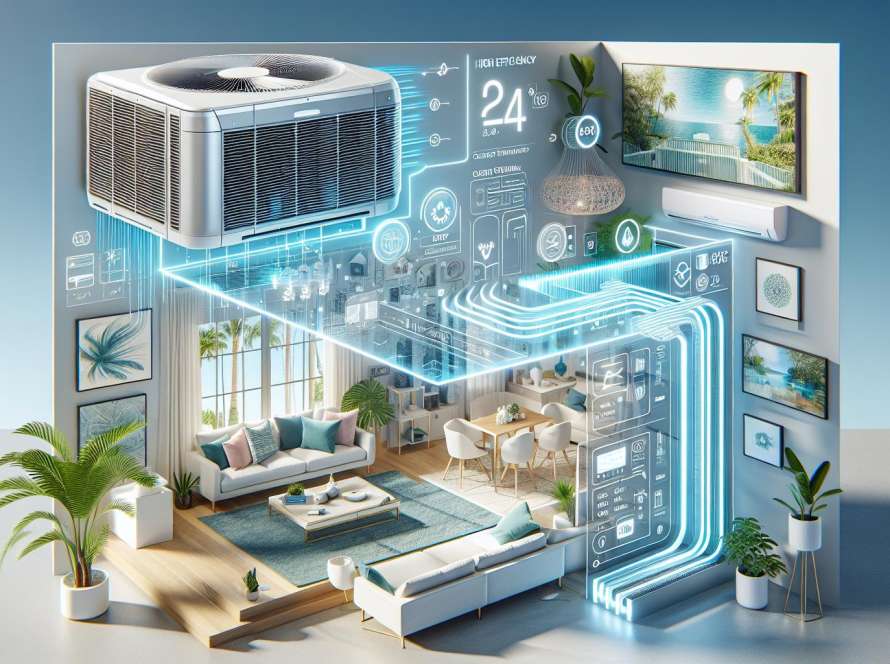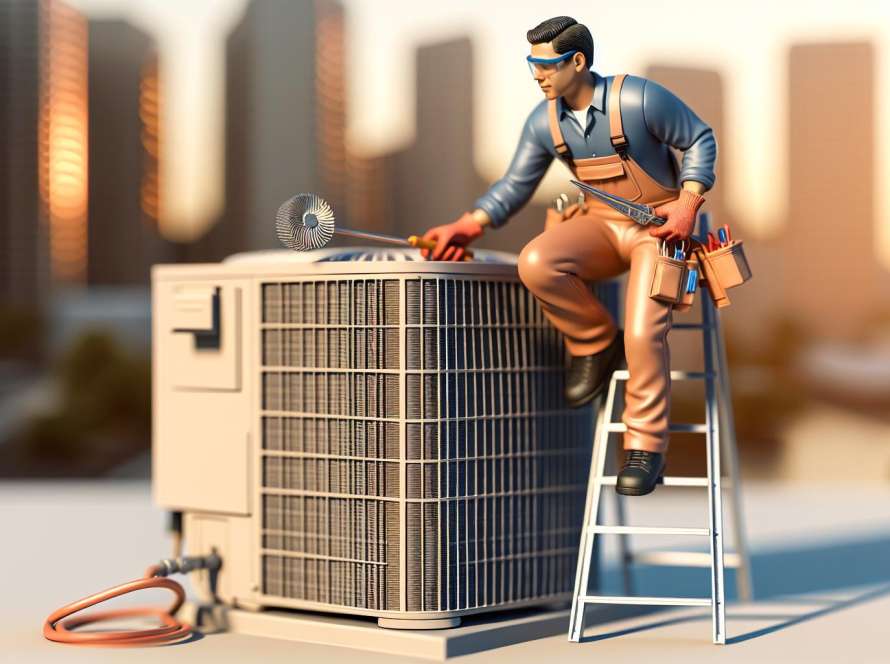Living in Florida, we all know the struggle of dealing with the relentless humidity that seems to seep into every nook and cranny of our homes. And when it comes to our air conditioning units, the constant battle against the moisture in the air can lead to frequent repairs that nobody wants to deal with. But fear not, because we’re here to share some expert tips on how to prevent those pesky AC breakdowns and keep your home cool and comfortable all year round.
From regular maintenance to simple DIY tricks, there are several proactive steps we can take to ensure our AC units stay in top shape, even in Florida’s unforgiving climate. By understanding the impact of humidity on our cooling systems and implementing preventive measures, we can save both time and money in the long run. So, let’s dive into the world of AC care and maintenance, and say goodbye to those unexpected repair bills once and for all.
Importance of AC Maintenance in High-Humidity Environments
In Florida’s humidity, AC maintenance is crucial to prevent frequent repairs and ensure your unit operates efficiently. Here’s why maintaining your AC is essential in high-humidity environments:
For Beginners: Understanding the Basics
- Change filters regularly to prevent clogs and maintain airflow.
- Trim vegetation around your outdoor unit to ensure proper ventilation.
- Keep the area around the unit clean to prevent debris buildup.
For Intermediate Users: Enhancing Your Maintenance Routine
- Schedule professional maintenance at least once a year to check for any issues.
- Check refrigerant levels to ensure optimal cooling performance.
- Inspect and clean ductwork to improve air quality and efficiency.
- Consider installing a dehumidifier to reduce moisture levels in the air.
- Upgrade to a programmable thermostat for better control and energy savings.
- Invest in regular duct cleaning to maintain indoor air quality and system efficiency.
Regular maintenance not only extends the lifespan of your AC unit but also helps you avoid unexpected breakdowns, especially in high-humidity climates like Florida. By following these tips, you can keep your AC running smoothly and efficiently, even in the most challenging conditions.
Understanding the Impact of Humidity on AC Systems

In high-humidity environments like Florida, humidity levels can significantly affect the performance and lifespan of air conditioning (AC) systems. Let’s delve into how humidity can impact your AC unit:
For Beginners: The Basics
- Humidity increases the moisture in the air, making it harder for the AC system to efficiently cool your home.
- Condensation build-up due to high humidity can lead to mold growth in your AC unit, affecting indoor air quality.
- Ensure to replace filters regularly to prevent dust and mold accumulation in your AC system.
- Consider using a dehumidifier to reduce moisture levels in the air and lessen the strain on your AC system.
For Intermediate Users: Enhancing Performance
- High humidity can cause your AC unit to work harder, leading to increased energy consumption and potential malfunctions.
- Schedule professional maintenance to check for refrigerant leaks and ensure optimal system performance.
- Upgrade to a programmable thermostat to adjust cooling settings based on humidity levels and save on energy costs.
- Invest in regular duct cleaning to prevent blockages and maintain efficient airflow in your AC system.
- Consider HVAC zoning to control temperatures efficiently in different areas of your home, especially in high-humidity zones.
- Monitor and maintain optimal refrigerant levels to avoid overworking your AC system in humid conditions.
- Explore smart AC technologies that can adapt to humidity changes and improve overall system performance.
- Ensure proper insulation in your home to reduce the impact of external humidity on your AC unit.
By understanding how humidity affects your AC system, you can take proactive steps to optimize its performance and prevent frequent repairs in humid climates.
Proactive Measures to Prevent AC Breakdowns
Humidity can take a toll on your AC system, leading to frequent breakdowns if not properly managed. To prevent such issues and ensure your AC runs smoothly in Florida’s humid environment, we recommend the following proactive measures tailored to different experience levels:
For Beginners: Basic Maintenance Tips
- Change Filters Regularly: Ensure to replace filters every 1-2 months to prevent clogs from excess moisture.
- Keep the Area Around the Outdoor Unit Clear: Trim bushes and remove debris to allow proper airflow.
- Seal Leaks in Ductwork: Leaks can let humid air in, affecting the system’s efficiency.
For Intermediate Users: Enhancing AC Performance
- Schedule Professional Maintenance: Regular inspections can catch problems early and ensure optimal performance.
- Invest in Programmable Thermostats: Set them to adjust temperatures based on your schedule to save energy.
- Consider HVAC Zoning: Zoning rooms can help regulate temperatures efficiently based on usage.
- Monitor Refrigerant Levels: Low refrigerant levels can strain the system; maintain optimal levels for efficiency.
- Explore Smart AC Technologies: Smart thermostats and systems can adapt to your habits, enhancing comfort and efficiency.
- Ensure Proper Insulation: Well-insulated homes retain cool air better, reducing strain on the AC system.
Implementing these proactive measures can significantly reduce the likelihood of AC breakdowns and keep your system running smoothly, even in Florida’s humidity.
DIY Tips for Maintaining Your AC Unit
For Beginners: Mastering AC Basics
- Change Filters Regularly: It’s a vital and simple step to keep your AC running efficiently.
- Keep Outdoor Unit Clear: Ensure there are no obstructions around the outdoor unit for proper airflow.
- Seal Ductwork Leaks: Prevent cool air from escaping and keep your system working effectively.
For Intermediate Users: Enhancing AC Performance
- Schedule Professional Maintenance: Regular checks can detect issues early and keep your AC in top shape.
- Use Programmable Thermostats: Set schedules to maximize comfort and energy savings.
- Consider HVAC Zoning: Customize temperatures for different areas to optimize cooling efficiency.
- Monitor Refrigerant Levels: Low refrigerant can affect cooling capacity, so keep an eye on this.
- Explore Smart AC Technologies: Invest in smart features for remote monitoring and control of your system.
- Ensure Proper Insulation: Proper insulation can reduce energy loss and improve overall system efficiency.
| Fact | Data |
|---|---|
| Regular professional AC maintenance checks can improve efficiency and prolong the life of your system. | Regular maintenance can increase AC efficiency by up to 20%. |
| Smart thermostats can help save energy by adjusting temperatures when you’re away. | Smart thermostats can save homeowners around $180 annually in energy costs. |
Keep these DIY tips in mind to maintain your AC unit and prevent frequent repairs in Florida’s humid climate.
Conclusion
In my final thoughts, regular maintenance and simple DIY tasks can help prevent frequent AC repairs in Florida’s humid climate. By changing filters, clearing outdoor units, and sealing ductwork leaks, we can improve efficiency and extend the life of our AC systems. Scheduling professional maintenance, using programmable thermostats, and exploring smart AC technologies are additional steps to consider. These measures not only save on energy costs but also ensure a comfortable indoor environment year-round. By taking proactive steps to care for our AC units, we can enjoy cool, reliable air conditioning without the hassle of frequent repairs.

